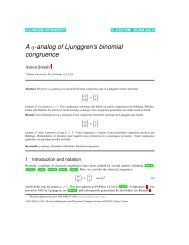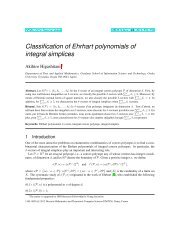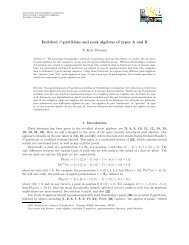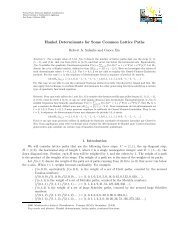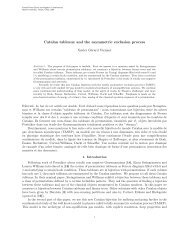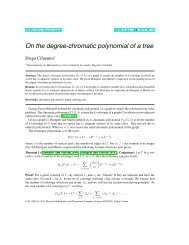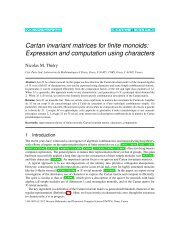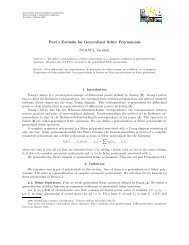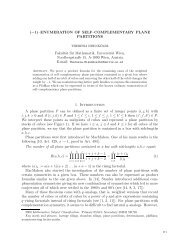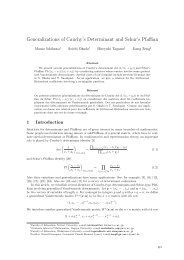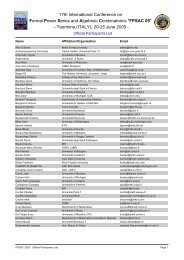Euler's partition theorem and the combinatorics of -sequences
Euler's partition theorem and the combinatorics of -sequences
Euler's partition theorem and the combinatorics of -sequences
Create successful ePaper yourself
Turn your PDF publications into a flip-book with our unique Google optimized e-Paper software.
Define a q-analog <strong>of</strong> <strong>the</strong> l-nomial:<br />
a n<br />
(l) (q) = un l − v l nqn<br />
u l − v l q ;<br />
∆(l) n (q) = ul n + v l n qn<br />
[ n<br />
k<br />
] (l)<br />
q<br />
= a(l) n (q) a (l)<br />
n−1<br />
(q) · · · a(l)<br />
n−k+1 (q)<br />
a (l) (q) a(l) (q) · · · a(l)<br />
1 (q) .<br />
k<br />
k−1<br />
Then<br />
[ n<br />
k<br />
] (l)<br />
q<br />
= q k [ n − 2<br />
k<br />
] (l)<br />
q<br />
[ ]<br />
+ ∆ (l) n − 2 (l)<br />
n−1 (q) k − 1<br />
q<br />
[ ] n − 2 (<br />
+ q n−k k − 2<br />
q<br />
<strong>and</strong><br />
n∑<br />
[ n<br />
k<br />
k=0<br />
] (l)<br />
q<br />
q k(k+1)/2 z k = α n (q, z)<br />
⌊n/2⌋<br />
∏<br />
i=1<br />
(1 + zq i ∆ (l)<br />
n−2i+1 (q) + z2 q n+1 ).<br />
where α n (q, z) = 1 if n is even; (1 + zq (n+1)/2 ) if n is odd.



